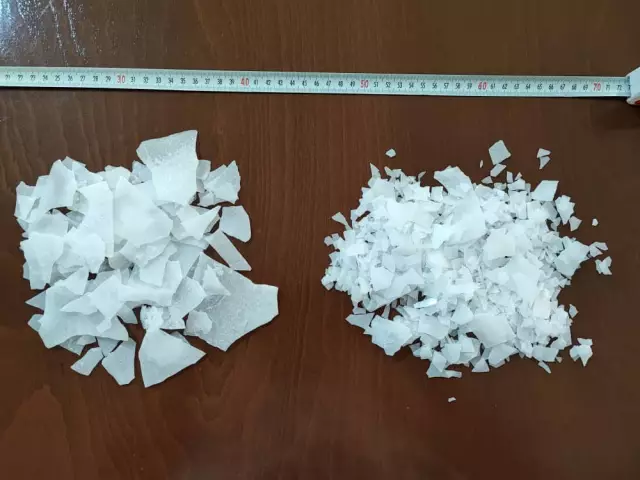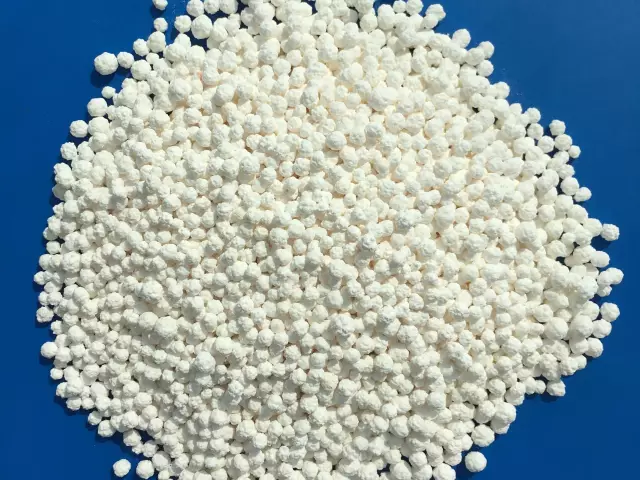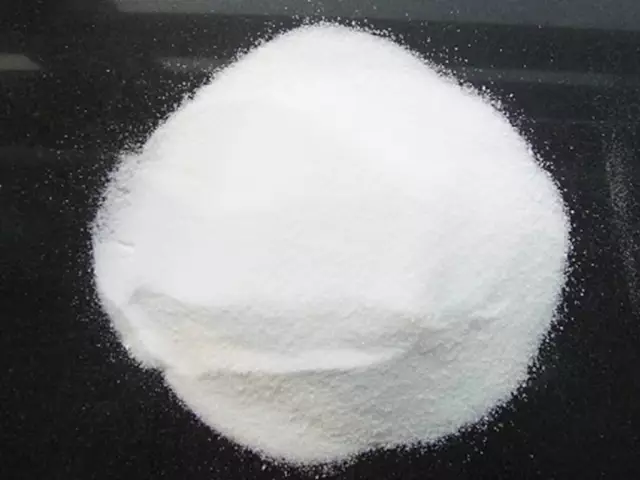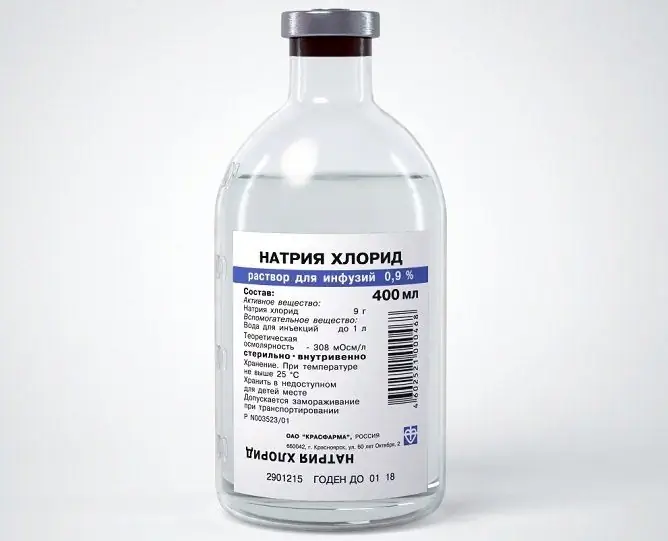- Author Rachel Wainwright wainwright@abchealthonline.com.
- Public 2023-12-15 07:39.
- Last modified 2025-11-02 20:14.
Magnesium chloride

Magnesium chloride is an inorganic chemical compound of chlorine and magnesium, which is found in nature as a mineral substance bischofite.
Getting magnesium chloride and its properties
Magnesium chloride is a transparent crystals with a density of 2.3 g, which melt at a temperature of 1400 degrees. For the first time magnesium and its raw materials were discovered in 1695 in England, and in 1808 it was obtained in its pure form by the scientist G. Davy.
This compound is obtained in several ways, including it is obtained in nature in the form of bischofite. Magnesium chloride is also obtained by evaporation of sea salt and minerals.
From the magnesium chloride solution, carnallite is obtained, which serves as a source of potassium and magnesium chloride.
To obtain a solution of magnesium chloride of the anhydrous type, bischofite is subjected to dehydration and dehydration at a temperature of about 200 degrees.
Magnesium chloride has several beneficial properties and is also approved for external and internal use. This solution has anti-inflammatory, analgesic, regenerating and decongestant effects.
Magnesium has a positive effect on the skin, improves the condition of the musculoskeletal system, normalizes blood circulation and the functioning of the nervous system.
Magnesium chloride applications
In the food industry, magnesium chloride is labeled as a food additive E 511 and is used as a thickener and hardener. This compound is found in soft drinks, dietary and infant formula.

Concentrated magnesium chloride solution is an essential component of nigari brine in Japan. The brine is prepared by evaporating sea water and then isolating the sea salt. Nigari is a component of soy milk used for tofu.
As an emulsifier, magnesium chloride is found in the following products:
- canned vegetables and fruits, including tomatoes, cucumbers, peppers, peaches, pineapples, guava, mangoes, etc.;
- bakery compounds, including yeast and dough powders;
- thickeners and hardeners for the preparation of confectionery products;
- dairy products;
- soft drinks and cocktails;
- baby products, including yogurt and jelly;
- dietary products.
In the food industry, magnesium chloride is approved for use as a paint stabilizer, which has undergone a special technological treatment. In food, this compound is a source of magnesium, increases the shelf life and enriches with minerals.
In medicine and cosmetology, this chloride is part of gels and ointments for the treatment of the musculoskeletal system, compresses and tinctures for external use, as well as bath salts and tinctures for rinsing the mouth for inflammatory and infectious diseases.
Found a mistake in the text? Select it and press Ctrl + Enter.






